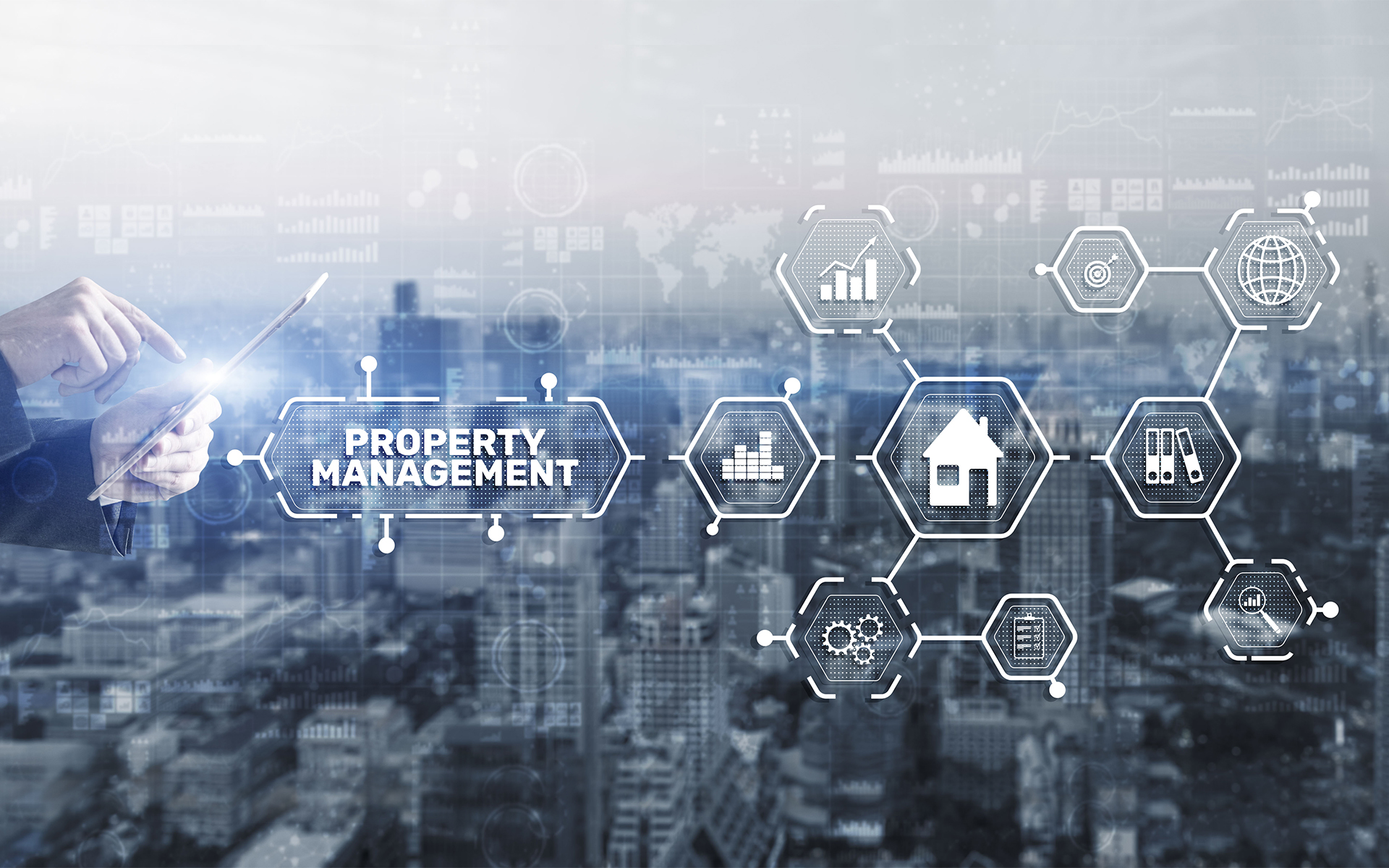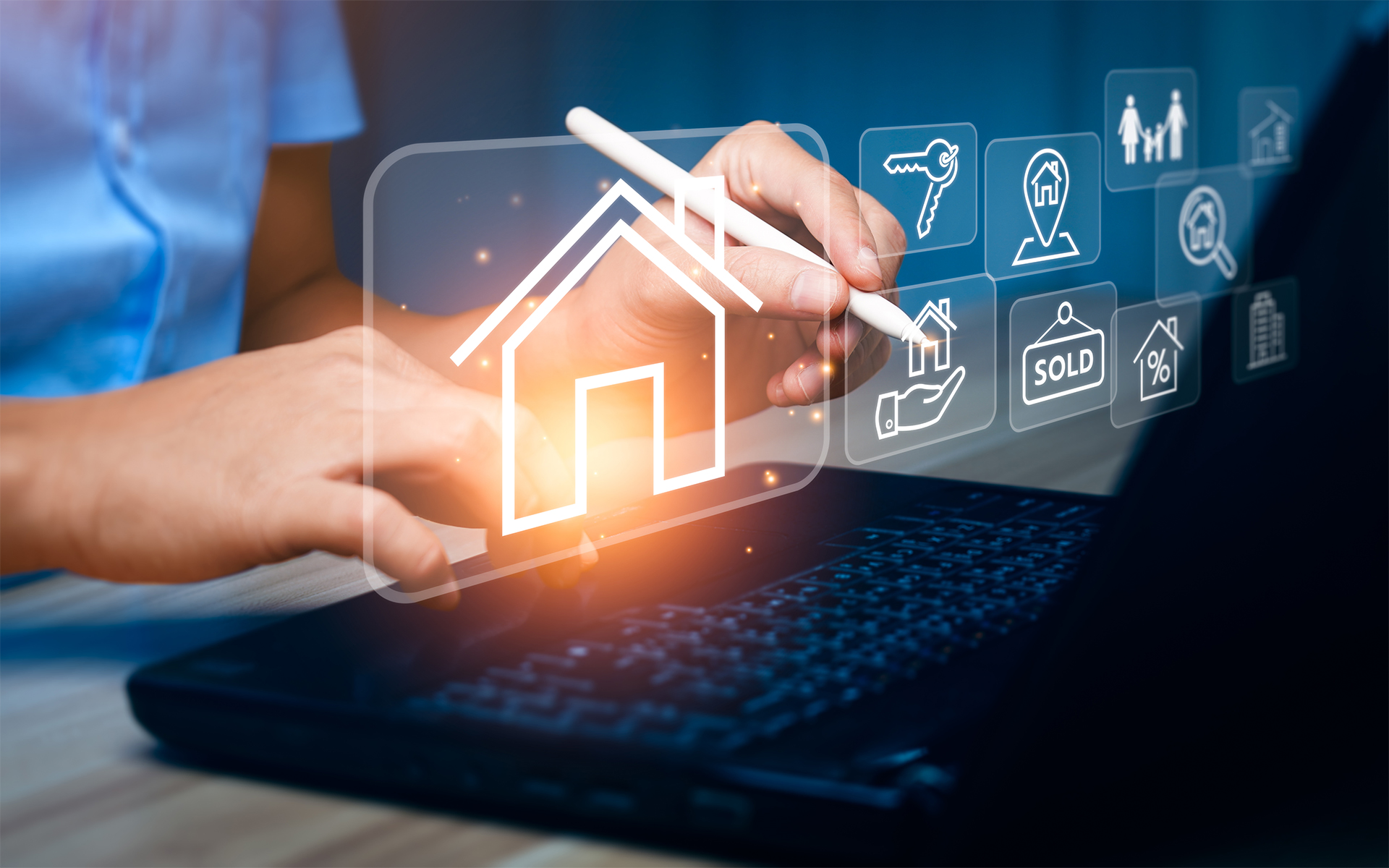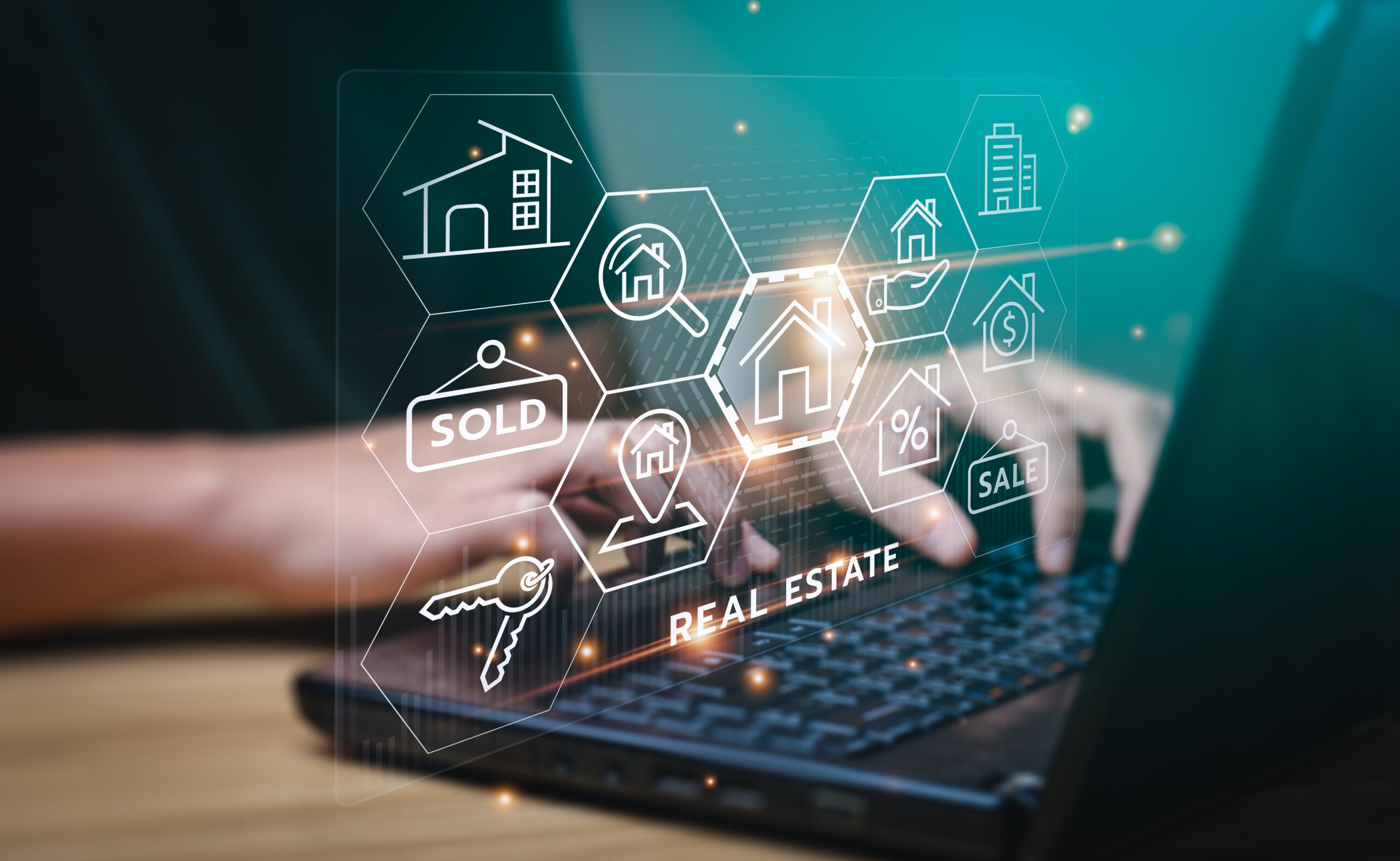Introduction: The transformation of property management and the influence of digital platforms
Property management has long been a laborer’s job. Landlords and property managers have leaned heavily on paper-based systems to manage everything from rent collection to maintenance requests, and they often have required frequent in-person meetings with tenants. However, such a method can be inefficient, cause response time delays, and provoke paperwork errors.
But, the advent of digital platforms have completely altered the property management scenario. Technology makes it possible for there to be automated, efficient systems for online rent collection, maintenance tracking, tenant communications, document management. These tools enables property managers to automate their processes, lower overhead costs, and enhance overall tenant happiness.
Platforms Sit in the Centre The modern world of property management has seen the rise of the platform – a techno solution that ensures process becomes faster, smoother, and fairer: accolades that underpin a good management system. Adding features like automated payments, data-driven insights, and smart home technology, these platforms give property managers the tools they need to remain competitive in an ever more digital world. I thought it would be useful to cover how digital platforms are transforming property management in this blog – and why it’s now no longer a case of you can take it or leave it.
The Emergence of PropTech in Real Estate Management
Proptech (property technology) is a term used to describe the application of information technology and platform economics to real estate markets and products. The last decade has seen PropTech disrupting the property management sector and providing solutions to streamline difficult functions, improve operational effectiveness and create a better experience for property owners and tenants.
Conventional property management was further carried out with little help from technology because it was over-dependent on paper records, rent payment in person and maintenance jobs that were not easy to track. PropTech platforms have disrupted these functions and processes by automating them, enabling property managers to operate their properties effectively on a daily basis. For instance, automation features offer more than just automatic rent collection: online bill pay, reminders for tenants, and control over potential missed payments and late fees.
Real Estate Platform for Property Management: Salient Features
Property management built on real estate technology Real estate websites have come a long way–they’ve become a full suite of tools for property managers, with capabilities that automate, enhance productivity and make the tenant experience better. This is how these platforms are revolutionizing property management: 1.
1. Automatic Rent Collection and Payment Facilities:
Automation of rent collections One of the pivotal characteristics of the recent property management software leasing platform is its rent collection tool. Landlords and property managers can schedule rent payments and reminders for their tenants, saving the trouble of paper invoicing. Various online payment methods can be used to pay rent by tenants, such as credit cards, bank transfers and digital wallets. Automation guarantees your payments go through on time, eliminating the penalties for late payments and increasing cash flow for property owners.
2. Tenant Screening and Background Checks:
To help guarantee quality renters, integrated tenant screening tools are available on real estate platforms. These platforms offer background checks, credit info, and eviction history, enabling landlords to make more-informed decisions about their renters. This automatic work flow saves time and minimizes the opportunities of renting to a potential tenant that could be problematic.
3. Lease Management and Digital Documentation:
Key Features Digital documentation: It’s easier to manage lease agreements with these digital documentation capabilities. Property managers can electronically file, follow and manage all lease agreements and documents. Many of these services offer the ability to sign the lease online, making it simple and paperless.
4. Maintenance Tracking and Issue Resolution:
And platforms provide tools for monitoring maintenance requests, as well. Users can complain about problems through the platform, which automatically creates work orders for maintenance teams or outside contractors. Progress can be tracked by managers, which can facilitate the timely workaround of problems while helping to keep tenants happy.
5. For Landlords, Tenants, and Property Managers:
Communication is the key to managing a property well. Real estate platforms have messaging features that enable landlords, tenants, and property managers to communicate directly with each other. It cuts down on misunderstandings and allows problems to be resolved promptly.
Together, these features help to drive increased efficiency, reduce costs, and save time for landlords and property managers while improving the experience for tenants.
What are the Real Estate Platforms: Advantages to the Landlords and Property Managers
Property Management tools bring numerous advantages to landlords and property managers because it helps them to operate more smoothly, efficiently and even brings better tenant experiences. Among the benefits:
1. Automation and Digital Tools -Enabling Time Saving and Cost Saving:
Property technology platforms automate mundane responsibilities like rent payments and maintenance requests. This shortens the time that must be spent on manual management, enabling property managers to concentrate on more valuable tasks. Automation also reduces human error and administrative cost, and save the fee of supervision scheme.
2. Simplification of Day-to-Day Operations:
They consolidate every aspect of property management, including lease management, tenant communication, and maintenance logging. Now landlords and property managers can manage multiple buildings in one place from anywhere without using multiple systems. This streamlined process results in relatively few operational humps and a high effiency spinal cord processing.
3. Improved Tenant Satisfaction and Retention:
Providing tenants with access to tools such as online pay, maintenance requests, and easy touch base for their managers improve overall satisfaction. Satisfied tenants are more likely to renew their leases, thereby lowering your vacancy rate and improving resident retention. Positive tenant experiences also contribute to developing an excellent reputation for property managers and landlords.
4. Real-Time Data and Analytics to Make Informed Decisions:
Several real estate platforms provide analytics to assist landlords and property managers in making data-driven decisions. When paired with real-time data, like rent trends, market conditions and tenant feedback, more strategic planning can occur. Whether you are making adjustments to rent, pursuing investment opportunities, or looking at operational efficiencies, the data-focused process leads to smarter decisions and, ultimately, greater profits.
In conclusion, property management with the aid of real estate platforms simply does it much better by automating manual work, offering rich information and improved relationship with tenants. In the end, this kind of tool is about saving time, cutting costs and all while delivering better service and tighter operational efficiency to landlords and property managers.
The Benefits a Property Management Software Brings to the Tenant Experience
Property management software is an integral part of the improvement of tenant experience with features designed to make tenants experience as convenient, as transparent, and as responsive as possible. These online platforms simplify the way tenants engage with property managers, enjoy necessary resources, and address concerns quickly. Here’s how:
1. Responsive Property Details and Payment Options at Your Availability 24/7:
Tenants can access critical property data, their lease, payment history, year end statements and important notices anytime, 24/7 on the web. Being able to see property related information like amenities, maintenance schedules etc helps tenants feel more ‘in touch’ with where they are living. Tenants can also pay their rent and view their payment history in just a few taps, helping to ensure they never miss a rent due-date, and that financial transactions are frictionless.
2. Fast and transparent interaction with communication features:
Live messaging and notification functionality gives tenants the ability to chat with property managers or landlords in real time. Tenant inquiries, questions or concerns are met with clear, fast communication, whether they are asking about a lease term, reporting an issue or requesting a service. This openness instills trust and keeps renters informed, which is likely to make the renter/property manager relationship smoother.
3. Web Based Requests for Maintenance and Tracking Issues:
Tenant portals give tenants the ability to put in work orders right through the system.Once they have submitted their requests, they also get to add comments to give a more detailed description, upload photos, and track their request all the way through completion. So, there is no need for calls or visiting the store in person which means you’ll get your problem resolved more quickly. Tenants like to know that their issues are being fixed quickly, which will boost their overall satisfaction.
4. Enhanced Tenant Satisfaction and Loyalty:
Property management platforms enhance the general tenant experience by offering enhanced communication, easy payment methods, and effective maintenance management. Satisfied tenants, who perceive prompt and effective resolution to their needs, are most likely to stay, thereby increasing retention rate while encouraging loyalty.
These are the developments that are driving a connected living experience, and they help people feel looked after and cared for and that is all part of tenant retention and satisfaction.
Making Work Easier through the Use of Digital Services and Automation
Property management has been transformed by the use of digital tools and automation that have made routine processes quicker and less vulnerable to human mistake. Automating these repetitive and time-draining duties will allow property managers to concentrate on the high-payoff parts of their business and to keep your buildings running smoothly. Here’s how automation is helping to make property management easier:
1. Automatic Rent Collection and Payment Processing:
Automate rent collection Another tremendous advantage of property management tools is the automated rent collection. Tenants can start the process and make a recurring payment so rent is paid each month, on time. Renters’ payments are automatically notified to property managers and they don’t have to spend a lot of time following up on rents. You can also automatically send late notices and reminders, contributing to a more stable cash flow and fewer missed payments.
2. Automated work orders and tickets:
Instead of calling or emailing and providing a description of an issue, tenants can automatically log requests online in these newfangled digital spaces. These requests are sent directly to the appropriate team or vendor, and the status is monitored in real time. This is not only faster but helping to make sure those issues don’t fall through the cracks.
3. Digital Communication and Alerts:
Automation even applies to the back and forth between residents and property managers. Property owners can set up and send automated reminders of lease renewals, maintenance plans or pending inspections. Plus, platforms can provide tenants with real-time updates on the status of their requests, payments or lease agreements, promoting transparency.
4. Human Failure and Increased Efficiency:
Mistakes happen or deadlines are missed when things are done manually, like collecting rent and keeping track of maintenance. The risks are greatly minimized by automation which can perform repetitive tasks with precision. This level of efficiency is not only a time-saver, but increases the general efficiency of operations, so that property managers can manage larger portfolios without difficulty. While such automated systems can also be compared to complete maintenance software and field service management platforms, human errors like entering wrong payment details or frogetting about maintaining client base follow-ups tend to be obviated.
Using digital tools and automation makes it easier for property managers to manage everything on the go, saving time, cutting costs and running more efficiently – and that ultimately plays out in the service property managers can offer their tenants and landlords.
Insights and Predictive Analytics for Building Managers
As the digital age continues to evolve, we are seeing data driven insights and predictive analytics take the property management world by storm. Big data in real estate Furthermore, real estate platforms can also use big data tools effectively to get information and use it in the decision-making process and enhance the efficiency of operations. Here’s how:
1. Tenant Behavior and Payment Trends:
Real estate companies gather and analyze vast amounts of data about what tenants are doing. For property managers, that translates to being able to track things like pay history, lates, and general tenant trends. By identifying these trends, managers can anticipate when a tenant will not be able to afford rent on time or pinpoint tenants at risk of moving out. This allows you to proactively communicate and take action, which directly leads to higher collections and better tenant retention.
2. Property Performance Analysis:
The word: Numbers never lie — analytics can help landlords to measure the success of each property in their portfolio. Crucial indicators such as occupancy rates, rental yields and historical performances can be followed over time. Dashboards and visual reports are commonly offered to quickly identify underperforming possessions, or those that may need attention — or improvement, like maintenance or upgrades — that could increase value and appeal.
3. SuiteCRM PredictiveAnalytics, for Maintenance and Renewals:
Predictive analytics allows property managers to plan for maintenances before problems occur. Going back into historical data around previous repairs, seasonal patterns and the lifespans of equipment, platforms that leverage this data can predict when appliances or systems will require maintenance or replacement. That predicts when major capital replacements will be needed, avoiding expensive emergency repairs and reducing renter discomfort.
Predictive analytics also provides property managers the data and insights to be proactive in their approach to lease renewals, based on tenant satisfaction, market conditions, and a look back at historical lease trends. They can spot tenants who are likely to renew and those who may be on their way out, in advance of renewals or leases expiring, making for less‑stressful transitions and fewer vacancies.
In essence, this data-driven proactivity and predictive analytics enable property managers to run their operations more efficiently, prepare themselves against challenges that might arise, and make decisions in a more educated way that can improve both tenant satisfaction and property performance.
8. Security and Transparency in Property Management Platforms
For property management, security and transparency are most essential factors in a transaction and both are a foundation of trust between the landlord, the property manager, and the tenant. At a time when a business’s identity is increasingly online, the need for such things has never been greater.
1. Safe Digital Transaction and Data Security:
Property management software manages sensitive information like tenant credit information, payment information, and lease documents. Accordingly strict security mechanisms are required to secure this information against cyber-attacks and unauthorized access. The platforms commonly utilise encryption, secure payment gateways and multi-factor authentication, to protect the data of landlords and tenants. This provides you with peace of mind knowing that all transactions, such as rent and deposits, are completed securely to help avoid fraud and mitigate financial risk.
2. Upfront Tenant Relationship and Payment Transparency:
Openness is one of the building blocks in forging good relationships between landlords and tenants. Platforms also facilitate transparency with easily accessible records of payments, leases, and communications. The renters can see when their rent is due, check up on rent owed and historical payments quickly. Property managers, on the other hand, may also track and resolve payment difficulties before they escalate. The fact that every transaction is traceable and verifiable by all sides means there will be no contention over payments, enhancing trust and unlockigin transparency between landlords and tenants.
3. Blockchain and Fraud Prevention:
Property management, security and fraud are all likely applications of blockchain technology. With the use of blockchain, every transaction has a permanent and auditable record in an unbooliable ledger giving us a clear record of all property related activity like lease documentation, rent/airtel/fisp payments, maintenance issues all of it has a clear record. This is also a deterrent to fraud and ensures that all records are made easily available making them easier to verify all of which stands to benefit landlords and tenants in the event of a dispute.
When blockchain and other innovative technologies are being used with property management platforms, they change the industry, providing increased security, reducing risks, and improving transparency in the entire sphere of property management.
9. Smart Home and IoT Integration in Property Management
The adoption of smart home technology and the Internet of Things (IoT) in property management is a game-changer, providing increased efficiency, ease, and control for property owners, property managers, and tenants. These solutions not only upgrade the management of the building itself but offer more value to tenants and optimise operations.
1. Smart IoT Devices for Better Property Efficiency:
Smart properties with IoT-enabled devices, including smart thermostats, smart lighting, and security systems, lead to substantial gains in property management. When you add smart thermostats to control the temperature depending on occupancy you can save on your electricity bill. Likewise, smart lighting systems enable building managers to manage lighting from afar so that energy consumption is fully maximized. Security devices, such as smart cameras and locks, improve safety in real time, and permit property managers and tenants access from anywhere. These systems cooperate to keep the property running smoothly and also add convenience for residents.
2. Remote Monitoring and Maintenance:
Property managers who oscillate toward integration with IoT and smart home have the power to keep an eye on their properties from afar. Property managers have the ability to monitor important data points including energy consumption, HVAC efficiency and security status from anywhere at any moment in time. IoT connected systems can even dispatch alerts when maintenance issues occur (i.e. leaks, temperature variances and appliance malfunctions), so managers can address issues immediately and confidently schedule repairs before little problems become big ones. This not only improves the tenant experience with faster repairs; it also increases the life of property systems and appliances.
3. Streamlined Operations and Cost Savings:
Bringing intelligence to property management With intelligence from a smart building, property managers can automate standard tasks, refine operational flows and minimize the need for manual labor. Remote diagnostics and preemptive maintenance ensure that problems are identified and corrected before they occur, resulting in fewer service visits and reduced repair expenses. In addition, tenants experience a better living environment, as such technologies frequently provide increased comfort, safety and energy efficiency.
wholesale nba jerseys from china In conclusion, the incorporation of smart home and IoT technology on property management platforms grants both property managers and tenants more control, convenience, and efficiency which allows for smoother operations and long term cost savings.
Case Studies: Property Management as a Service Companies disrupting Real Estate Platforms
Property Management is changing as we see Real Estate platforms disrupt the status quo and make management more efficient, user-friendly, & affordable. A number of systems that had shown the specific advantages of these innovations.
1. redbriQ is Dynamiting Property Management, using Data Driven Automation
redebriQ, a technology startup, we provide a single source solution for property managers who want to distribute their efforts to seamlessly manage their operations with automation and live statistics. The company provides online rent collection, tracking of maintenance and communication with tenants all available in one simple to use interface. One of the most important elements is the predictive analytics engine, which enables property managers to predict when maintenance problems and tenant issues could arise — and to solve them in advance instead of in retrospect.
Real-World Impact:
And finally, from a landlord perspective, the automation has cut down manual work by 50%.. opening the doors to a significant amount of time. A large property management company who adopted redbriQ as a solution reported a 30% reduction in maintenance costs from the use of predictive analytics and automated issue resolution, with an increased satisfaction from tenants who were able to access maintenance request directly to the platform in turn receiving fast and timely responses.
2. Buildium: Enhancing Communication and Efficiency
Another software in the line is Buildium that’s responsible for a renaissance of property management companies through it’s approach to communication and automation. It simplifies lease management, online payments and tenant comms. A case study featuring a multi-family property manager highlighted how Buildium improved company productivity by 40% thanks to tenants being able to pay online and submit maintenance requests in an easy to use environment. This positive impact on tenant relations translated into better retention rates.
3. Avail: tax write offs for landlordsBootTestimonial-SarahNo More Bounced Checks, Awkward Calls, or Missed Rent Avail Makes Managing Rental Property Easy!
Avail is designed for independent landlords and provides services such as rent tracking, tenant screening and digital leases. One Avail user, who was a landlord, provided an example of the platform’s intuitive nature, stating that because certain administrative tasks were reduced by 60%, they were able to invest more time out in the field shopping property and engaging tenants.
In these best practices cases, tendency-based and digital platforms in property management has demonstrated positive effects: a better operating efficiency, reduced overheads, long-term tenant relations. The more landlords and those in the property management industry utilize these types of platforms, the more efficient and technology-focused the world of property management appears to be headed.
Conclusion: The Evolution of Real Estate Platforms in Property Management
The property management industry is in the midst of the revolution in automation, communication, and access to the data which real estate platforms are bringing. These SaaS solutions streamline complicated property tasks such as rent collection, maintenance scheduling, and tenant management, making things easier for property managers and better for landlords. Through predictive analytics, smart home technology and streamlined communication tools, digital platforms are offering solutions that were unthinkable under the “old” property management model.
For property managers and landlords, utilizing digital platforms has become a necessity in order to remain competitive in a market that demands speed, transparency, and security. These intelligent communities require less overhead to manage and are better at retaining their tenants by offering improved service and convenience. Innovation of tools used in property management by technology advancements like Blockchain AI, IoT will pave the way for growth which is the focus on operational efficiency and tenant happiness.
The PropTech space is rapidly advancing and its impact on property management will undoubtedly grow. Adoption of these advancements can provide property managers with a roadmap to boosting profitability, streamlining operational flow, and future-proofing the business in an ever more digital world. The move to digital is not just a fad, but a must for those that wish to succeed in the property management industry of today.



